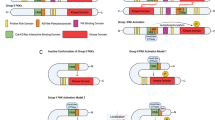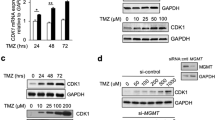Abstract
During the last 10 years, multiple signal transduction pathways within cells have been discovered. These pathways have been linked to the regulation of many diverse cellular events such as proliferation, senescence, differentiation and apoptosis. This review will focus upon the many roles of signaling by the p42/p44 mitogen-activated protein (MAP) kinase pathway. Recent evidence suggests that signaling by the MAP kinase pathway can both enhance proliferation by increased expression of molecules such as cyclin D1, but also cause growth arrest by increased expression of molecules such as the cyclin kinase inhibitor protein p21Cip-1/MDA6/WAF1. These differential effects on growth have been correlated to the amplitude and duration of the MAP kinase activity signal. Furthermore several laboratories are reporting data suggesting that inhibition of the MAP kinase pathway, as well as a family of upstream MAP kinase activators, the protein kinase C family, represent an important route to both radio- and chemo-sensitization of tumor cells. Herein, we describe the historical discovery and characterization of the MAP kinase pathway. In addition we describe potential mechanisms by which inhibition of protein kinase C, the MAP kinase pathway, and potentially of p21Cip-1/MDA6/WAF1 expression, may alter the sensitivities of leukemic and carcinoma cells to cytotoxic insults, leading to increased apoptosis and loss of clonogenicity.
This is a preview of subscription content, access via your institution
Access options
Subscribe to this journal
Receive 12 print issues and online access
$259.00 per year
only $21.58 per issue
Buy this article
- Purchase on Springer Link
- Instant access to full article PDF
Prices may be subject to local taxes which are calculated during checkout
Similar content being viewed by others
Author information
Authors and Affiliations
Rights and permissions
About this article
Cite this article
Dent, P., Jarvis, W., Birrer, M. et al. The roles of signaling by the p42/p44 mitogen-activated protein (MAP) kinase pathway; a potential route to radio- and chemo-sensitization of tumor cells resulting in the induction of apoptosis and loss of clonogenicity. Leukemia 12, 1843–1850 (1998). https://doi.org/10.1038/sj.leu.2401222
Received:
Accepted:
Published:
Issue Date:
DOI: https://doi.org/10.1038/sj.leu.2401222
Keywords
This article is cited by
-
Anorexia–Cachexia syndrome in cancer: implications of the ubiquitin–proteasome pathway
Supportive Care in Cancer (2006)
-
Induction of apoptosis and transient increase of phosphorylated MAPKs by diallyl disulfide treatment in human nasopharyngeal carcinoma CNE2 cells
Archives of Pharmacal Research (2006)
-
Induction of reactive oxygen species renders mutant and wild-type K-ras pancreatic carcinoma cells susceptible to Ad.mda-7-induced apoptosis
Oncogene (2005)
-
Downmodulation of ERK protein kinase activity inhibits VEGF secretion by human myeloma cells and myeloma-induced angiogenesis
Leukemia (2004)
-
Molecular targets for potentiation of radiation-induced cell killing
Breast Cancer (2004)



